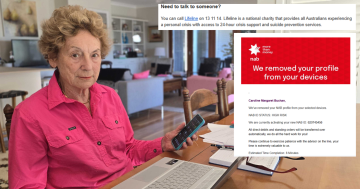 Western Australia’s ScamNet has released its 2022 Scam Report revealing a seven per cent increase among people losing their money to scams than they lost in the year before, 2021.
Western Australia’s ScamNet has released its 2022 Scam Report revealing a seven per cent increase among people losing their money to scams than they lost in the year before, 2021.
According to the Commissioner for Consumer Protection, Trish Blake, the Scam Report reveals 1,203 people reported combined losses of $15,988,513 in 2022, with online shopping and classified scams the most common to lose by.
“274 online shoppers lost a total of $876,774, with 270 buyers and sellers on classified sites losing a total of $564,680,” Ms Blake ( pictured) said.
“The top two scams reported to the Consumer Protection Contact Centre were the Amazon phishing scam – an SMS, email or phone call about an undelivered package or item supposedly being held at a distribution centre – and the cryptocurrency investment scam,” she said.
“Scams relating to the myGov phishing scam increased by 2,650 per cent from two enquiries in 2021 to 55 in 2022.
“In most cases, the scammers attempted to gain access to consumers’ banking details by claiming the consumers were entitled to a refund,” the Commissioner said.
She said the disturbing ‘Hi Mum/Dad’ text scam tricked 59 victims into paying $265,353 with criminals who were posing as desperate children needing urgent financial assistance from their parents.
Ms Blake said the Australian Competition and Consumer Commission (ACCC) reported that scam losses nationally were at least $2 billion a year and could be as high as $4 billion.
“Alarmingly,” she said “a survey has indicated that only about 13 per cent of scam losses are reported to authorities, indicating that the figures are only the tip of the iceberg.”
“Scammers are getting smarter and scams are getting harder to spot, so consumers need to be even more vigilant with all communication online and over the phone,” she said.
“With every phone call, text message or email it’s important practice the pause… and think, could this be a scam?”
Ms Blake said that if something appeared to be too good to be true, “it probably was!”
“Keep your personal information safe and only give it out once you have verified the legitimacy of the request through your own research,” Ms Blake said.
Further information and advice on scams, including how to report them, can be accessed on the WA ScamNet website at this PS News link.











